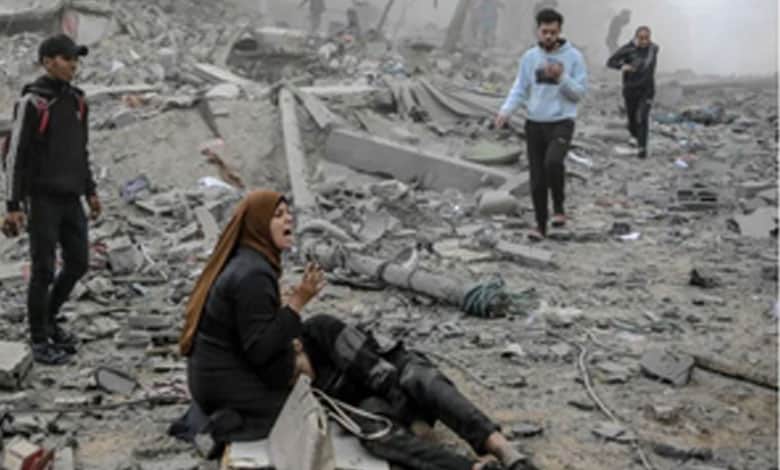Humanitarian Needs in Gaza Overwhelming, Says UN Amid Ongoing Crisis
The United Nations Office for the Coordination of Humanitarian Affairs (OCHA) has warned that the humanitarian needs in Gaza remain overwhelming despite a ceasefire holding in the region. With continuing Israeli operations in the West Bank, the situation has become even more dire, resulting in casualties and exacerbating the already severe conditions for Palestinians.

The United Nations Office for the Coordination of Humanitarian Affairs (OCHA) has warned that the humanitarian needs in Gaza remain overwhelming despite a ceasefire holding in the region. With continuing Israeli operations in the West Bank, the situation has become even more dire, resulting in casualties and exacerbating the already severe conditions for Palestinians.
Table of Contents
Critical Shortages of Life-Saving Supplies in Gaza
OCHA emphasized that critical supplies, such as oxygen, are urgently needed to maintain emergency, surgical, and intensive care services at hospitals throughout Gaza, including the Al Shifa and Al Rantisi hospitals in Gaza City. The Palestinian Ministry of Health has flagged the shortage of oxygen, and efforts are underway to bring in generators, spare parts, and equipment to produce oxygen locally.
In addition to medical supplies, humanitarian partners have been distributing essential aid across Gaza. Over the weekend, shelter partners provided tarpaulins to more than 11,000 families in northern Gaza, while 450 families in Khan Younis received sealing-off kits, kitchen sets, and hygiene kits at a displacement site in Al Mawasi.
Education and Relief Efforts Amid Destruction
Despite widespread devastation, education activities in Gaza are expanding. More than 250,000 individuals are currently enrolled in a distance learning program developed by the UN’s relief agency for Palestinian refugees. However, OCHA reported that 95% of school buildings have been damaged in the hostilities, forcing students to seek refuge in makeshift tents and open spaces, often enduring harsh winter conditions.
Ongoing Violence in the West Bank: Rising Casualties and Displacement
The humanitarian crisis extends beyond Gaza into the West Bank, where Israeli military operations, launched on January 21, have resulted in the deaths of 36 Palestinians, including 25 in Jenin and nearly a dozen in Tulkarm. These operations, described as the most extensive in two decades, have caused significant casualties, widespread displacement, and the destruction of critical infrastructure, further increasing the humanitarian needs in the region.
Also Read: Lebanon Extends Flight Suspension to Iran Amid Rising Tensions: What’s Next?
OCHA also raised concerns about the use of lethal, war-like tactics in these operations, noting that they exceed law enforcement standards.
Violence by Israeli Settlers and Growing Humanitarian Demands
In addition to military operations, violence from Israeli settlers has also escalated in the West Bank, with several villages in the Nablus governorate being attacked. One such attack involved the setting of a house on fire. Humanitarian partners are actively mobilizing resources to support the affected communities, but the ongoing violence continues to complicate relief efforts.
The UN and its humanitarian partners remain committed to delivering life-saving assistance across Gaza and the West Bank, but they urge urgent and sustained support to address the overwhelming needs of the Palestinian people.
Global Appeal for Assistance and Support in Gaza and the West Bank
The international community must respond swiftly to provide the necessary humanitarian aid to alleviate the suffering of civilians in Gaza and the West Bank. The UN continues to monitor the situation closely and is working alongside local authorities and humanitarian organizations to bring much-needed relief to the affected regions.
